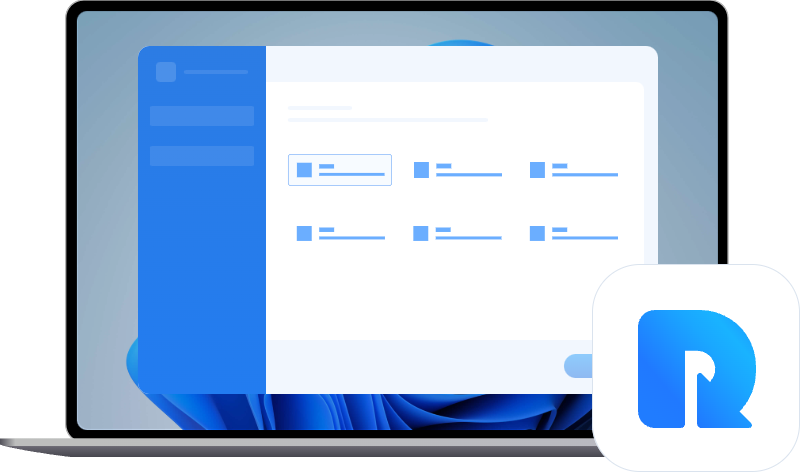Unraveling the Mystery: Excel File Keeps Closing Automatically
This guide delves into the common issue of Excel files closing automatically, providing insights into potential causes and effective solutions. Explore the realm of data recovery with MyRecover, learn how to retrieve permanently deleted Excel files, and implement practical fixes to keep your Excel files open.
The Enigma of Excel File Closures
Working on an important spreadsheet and suddenly finding your Excel file closing without warning can be a frustrating experience.
In this guide, we'll unravel the mystery behind why Excel files keep closing automatically and provide comprehensive solutions to address this common issue. From understanding the potential causes to exploring data recovery options and implementing practical fixes, let's embark on a journey to enhance your Excel experience.
Example: The Puzzling Case of Excel File Closures
Let's paint a scenario to illustrate the perplexity of the issue. You're diligently working on a crucial financial spreadsheet, crunching numbers and inputting data, when suddenly, Excel decides to play a game of hide-and-seek. The application shuts down automatically, leaving you staring at your screen in disbelief. This unexpected closure not only disrupts your workflow but also raises questions about the stability of Excel.
Possible Reasons Why Excel File Keeps Closing Automatically
Understanding the potential reasons behind Excel files closing on their own is crucial for effective troubleshooting. Let's explore the common culprits:
1. Software Conflicts:
Excel may close automatically due to conflicts with other software or background processes. Competing applications or incompatible add-ins can trigger these automatic closures.
2. Corrupted Workbook:
A corrupted Excel workbook is a potential culprit. If the file itself is damaged or contains errors, Excel might shut down to prevent further issues or data loss.
3. Insufficient System Resources:
Running Excel on a system with limited resources, such as low RAM or processing power, may result in automatic closures. Excel demands a certain level of system resources for smooth operation.
4. Outdated Excel Version:
Using an outdated version of Excel could contribute to automatic closures. Keeping Excel updated ensures access to bug fixes and stability improvements.
5. Add-In Interference:
Certain Excel add-ins might interfere with the application's normal operation, leading to automatic closures. Disabling or updating add-ins can resolve this issue.
Recovering Permanently Deleted Excel Files with MyRecover
Accidentally deleting a crucial Excel file can add to the frustration. MyRecover, a powerful data recovery tool, offers a lifeline with its advanced features:
1. Download and Install MyRecover:
Begin by downloading MyRecover from the official website and installing it on your system.
2. Select Excel File Location:
Launch MyRecover and choose the location where the Excel file was stored. This could be a specific folder or the system drive.
3. Initiate a Scan:
Allow MyRecover to conduct a thorough scan of the selected location to identify and recover permanently deleted Excel files.
4. Preview and Recover:
MyRecover presents a list of recoverable files. Preview them to ensure accuracy and select the Excel files you want to recover.
5. Save Recovered Files:
Click on the "Recover" button, choose a destination for the recovered Excel files, and let MyRecover restore your valuable data.
Feasible Fixes for Excel File Auto-Closures: Troubleshooting Solutions
Addressing the issue of Excel files closing automatically requires practical troubleshooting steps. Let's explore these fixes in detail:
1. Update Excel:
Ensure that you are using the latest version of Excel. Regularly check for updates and install them promptly to access stability improvements and bug fixes.
2. Check for Conflicting Software:
Identify and resolve conflicts with other software or background processes. Closing unnecessary applications can prevent interference with Excel's operation.
3. Repair or Recreate the Workbook:
If a specific workbook is causing issues, try repairing or recreating it. This involves creating a new workbook and copying the content to isolate and resolve corruption.
4. Allocate Sufficient System Resources:
Upgrade your system's RAM or processing power if Excel is running on insufficient resources. Adequate system resources ensure smooth operation without automatic closures.
5. Manage Add-Ins:
Review and manage Excel add-ins. Disable or update any add-ins that may be causing conflicts or disruptions to prevent automatic closures.
Implementing these fixes can significantly improve the stability of Excel and prevent files from closing automatically.
In Conclusion:
In the intricate world of spreadsheet management, achieving harmony with Excel is paramount. By understanding the potential causes behind automatic closures, recovering deleted files with MyRecover, and implementing practical fixes, users can enhance their Excel experience. Say goodbye to the frustration of unexpected closures and embrace a seamless and productive Excel journey.
FAQs:
1. Can MyRecover recover Excel files if they were permanently deleted a long time ago?
Yes, MyRecover is designed to recover Excel files even if they were permanently deleted a long time ago. Its advanced scanning capabilities can retrieve files from various stages of deletion.
2. What should I do if Excel files continue to close automatically after updating the software?
If the issue persists after updating Excel, try repairing or recreating the problematic workbook. This helps eliminate potential corruption issues within the specific file.
3. Are there specific add-ins known to cause Excel to close automatically?
While it varies, certain third-party add-ins may cause conflicts. Review and manage your Excel add-ins, disabling or updating them to identify and resolve any issues.


